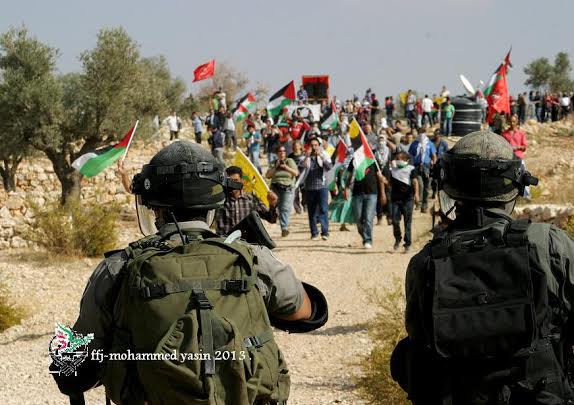Tag: Bil’in
-
Several injuries during Bi’lin weekly demonstration
16th October 2013 | Friends of Freedom and Justice | Bil’in, Occupied Palestine Yesterday during the weekly Bi’lin demonstration, an Egyptian photographer was injured after being shot by a tear gas canister in his back, Ismaeil Mohamed Abu Rahma (17-years-old) was shot by three rubber bullets in his back and Mohamed Hamed (21-years-old) suffered from tear gas…
-
Three Palestinians injured by Israeli forces during weekly protest in Bil’in.
1st November 2013 | FFJ media center | Bil’in, Palestine This Friday, October the 1st, Bil’in’s weekly peaceful demonstration has once again been a violent demonstration from the Israeli state, while live ammunition and huge quantities of tear gas have been shot. Ahmaed Bornat (21 years old) was injured today by .22 bullet in his…
-
Bil’in continue their weekly demonstration against the occupation
12th October 2013 | Friends of Freedom and Justice | Bil’in, Occupied Palestine Yesterday, 11th October, Israeli soldiers fired tear gas canisters at a Palestinian family while they were attempting to harvest their olives. This coincided with the weekly Bil’in demonstration against the Apartheid Wall where Israeli forces fired tear gas canisters, stun grenades and rubber-coated steel…



